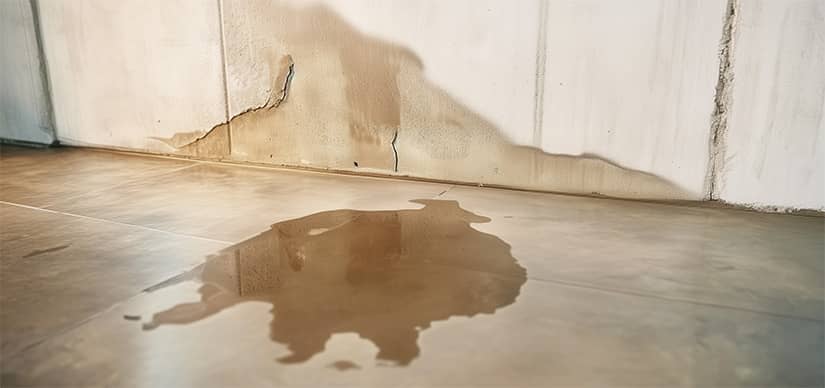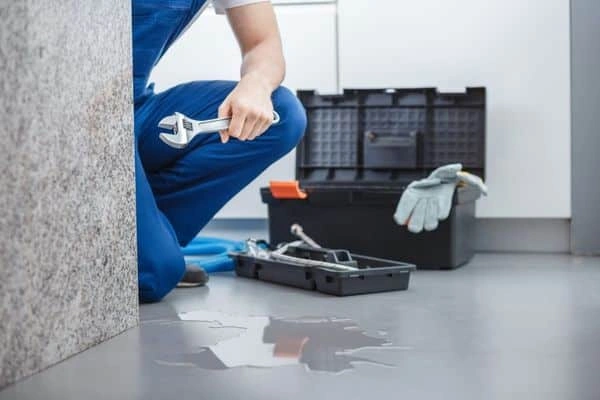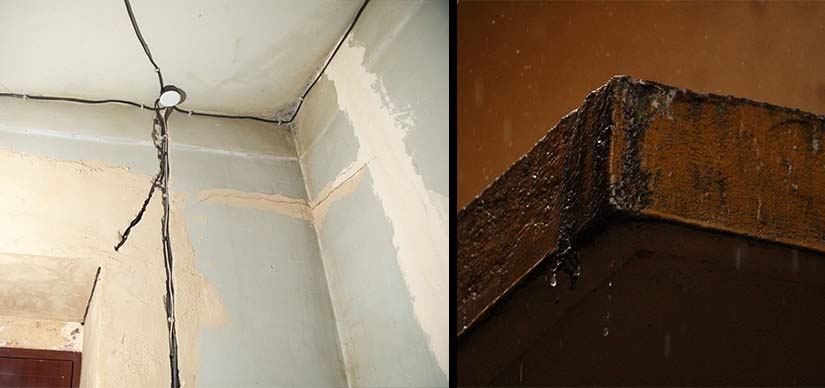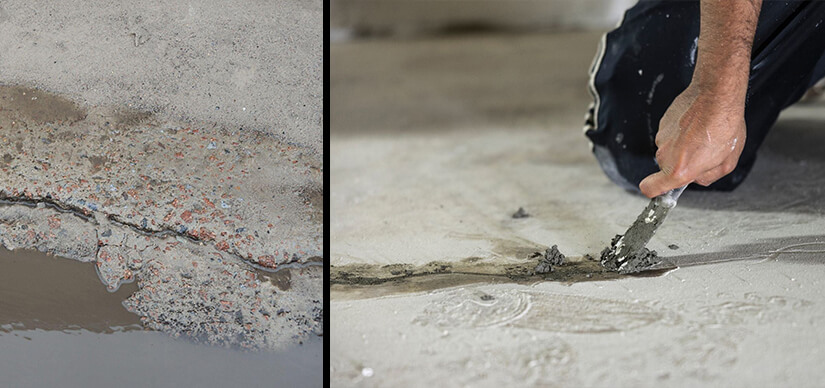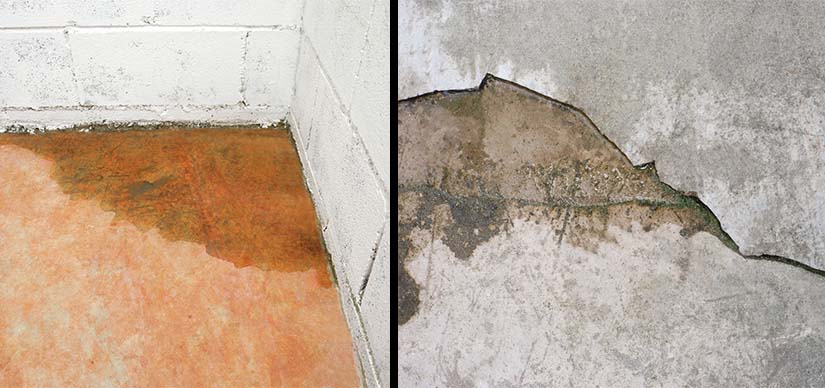A Homeowner’s Guide to Understanding a Slab Leak
Slab leaks can be a homeowner’s nightmare, but understanding what they are, how they occur, and why it’s crucial to address them can help prevent extensive damage to your home. In this blog, we will explore everything you need to know about slab leaks.
What is a Slab Leak?
A slab leak refers to a leak in the water pipes that run beneath the concrete foundation (or “slab”) of your home. These leaks can develop over time due to various factors, such as aging pipes, shifting soil, or poor installation. Because the leak is beneath the foundation, it’s not always immediately noticeable, which can lead to significant damage before it’s detected.
Recommended reading: What is the process of a slab leak repair
What Causes a Slab Leak?
Slab leaks can be caused by a variety of factors, each contributing to the potential damage and cost associated with the repair. Understanding these causes can help homeowners prevent or address the issue promptly:
- Pipe Corrosion: One of the most common causes of slab leaks is pipe corrosion. Over time, pipes, especially those made from copper or galvanized steel, can corrode due to the chemical reactions between the metal and the water or the surrounding soil. This corrosion can lead to small pinhole leaks that worsen over time, eventually causing significant water damage under the slab.
- Poor Installation: If the plumbing system was not installed correctly when the home was built, it could lead to slab leaks. Poor workmanship, such as improper pipe fitting, inadequate sealing, or the use of low-quality materials, can cause the pipes to weaken or break prematurely. Even slight imperfections in the installation process can create vulnerabilities that might not show up until years later.
- Soil Shifting: The ground beneath your home is not always stable. Changes in soil conditions, such as expansion and contraction due to moisture content or temperature fluctuations, can put pressure on the pipes beneath the slab. Over time, this shifting can cause pipes to crack or disconnect, leading to leaks. Homes built on expansive clay soils are particularly susceptible to this issue.
- Abrasion: Pipes under a slab can sometimes rub against the concrete, gravel, or other pipes due to natural vibrations or shifts in the ground. This constant friction can wear down the pipe material, leading to small leaks that can worsen over time. This is more common in areas where pipes are tightly packed together or where the slab was poured directly onto the pipes without adequate insulation.
- High Water Pressure: Excessively high water pressure can stress pipes, particularly those that are older or already weakened by corrosion. This pressure can cause pipes to burst or develop leaks. High water pressure might not only damage the pipes under the slab but also other parts of your plumbing system.
- Chemical Reactions: The water quality in your area can also affect the integrity of your pipes. If the water has a high mineral content, it can lead to scale buildup inside the pipes, which can cause blockages and increase pressure. Additionally, certain chemicals in the soil can react with the pipe material, leading to corrosion and eventual leaks.
- Aging Pipes: Like anything else, pipes have a lifespan. Older homes with aging plumbing systems are more prone to slab leaks as the pipes wear out over time. Materials used in older plumbing systems, such as galvanized steel, are more likely to corrode and fail, leading to leaks.
Recommended reading: Slab Leak Detection: DIY vs. Professional – Which is the Better Option?
Common Warning Signs of a Slab Leak
Identifying a slab leak early is crucial to prevent extensive damage to your home. Here are some more detailed warning signs to watch out for:
- Unexplained Increase in Water Bills: A sudden and unexplained spike in your water bill is one of the earliest indicators of a hidden leak. If your water usage hasn’t changed but your bill has increased significantly, a slab leak might be the culprit. Even a small leak can waste hundreds of gallons of water, driving up your costs.
- Warm or Damp Spots on Floors: If you notice areas of your floor that are unusually warm, it could indicate a hot water line leaking beneath the slab. Similarly, damp spots on the floor, especially in areas where there shouldn’t be moisture, are a strong indicator of a slab leak. These spots may appear as small puddles or areas where the flooring is starting to lift or discolor.
- Low Water Pressure: A sudden drop in water pressure throughout your home can be a sign that water is escaping through a leak under the slab. This is especially noticeable when multiple fixtures, like faucets and showers, have reduced pressure simultaneously.
- Sound of Running Water: If you hear the sound of running or dripping water even when all taps are off, it’s a sign that water is leaking somewhere. In the case of a slab leak, this sound can be faint and hard to locate, but it’s often a telltale sign of a problem beneath the foundation.
- Cracks in Walls or Floors: Over time, a slab leak can cause the foundation to shift or crack as water undermines the soil or the slab itself. This can result in visible cracks in your walls, floors, or even the ceiling. These cracks may start small but can quickly worsen if the leak is not addressed.
- Mold and Mildew: A hidden slab leak can create an environment conducive to mold and mildew growth. You might notice a musty odor, or see visible signs of mold on walls, baseboards, or flooring. Mold can pose serious health risks, particularly for individuals with allergies or respiratory conditions.
- Unusual Pooling of Water Outside: Sometimes, a slab leak can cause water to pool outside your home, especially near the foundation. If you notice water collecting in your yard or around the exterior walls without an obvious cause, it could be due to a leak beneath the slab pushing water upwards.
How to Detect a Slab Leak
Detecting a slab leak early can save you from costly repairs. While some signs may be noticeable without professional tools, accurately identifying a slab leak often requires specialized equipment and expertise. Here’s how to detect a slab leak:
- Check Your Water Meter: One of the simplest ways to detect a slab leak is by checking your water meter. First, ensure all water fixtures and appliances are turned off. Then, observe the water meter for any movement. If the meter is still running, it indicates that water is being used somewhere in your home, likely due to a leak.
- Infrared Cameras: Professionals often use infrared cameras to detect slab leaks. These cameras can identify temperature differences in your floors, which are often caused by leaking hot water pipes. This method is non-invasive and can help locate the exact area of the leak without having to break through the slab.
- Acoustic Listening Devices: These tools amplify the sound of water escaping from pipes, making it easier to pinpoint the location of a leak. Skilled plumbers can use these devices to listen for the distinct sounds of a slab leak, even when it’s deep beneath the foundation.
- Pressure Testing: Another method to detect a slab leak is pressure testing. By isolating sections of your plumbing system and measuring the pressure within the pipes, plumbers can determine if there’s a loss of pressure indicating a leak. This method is particularly effective for detecting small or slow leaks that might not be obvious through other means.
- Video Pipe Inspection: Some plumbers use small, flexible cameras that can be inserted into your plumbing system to visually inspect the pipes. This allows them to see the inside of your pipes and identify any cracks, breaks, or leaks directly.
- Slab Leak Detection Dye: In some cases, a special dye can be introduced into the plumbing system to help identify the source of a leak. This dye will seep out from the leak, allowing it to be visually detected in the areas where it surfaces, such as cracks or damp spots.
- Moisture Meters: Moisture meters can be used to detect elevated moisture levels in your flooring or walls. High readings in specific areas could indicate a slab leak, especially when combined with other signs like damp spots or mold growth.
Detecting a slab leak can be challenging, but early detection is key to preventing further damage. If you suspect a slab leak, it’s important to act quickly and contact a professional plumber who has the tools and experience to accurately diagnose and repair the issue.
How Important Is It to Address a Slab Leak?
Addressing a slab leak promptly is crucial for several reasons, as delaying repairs can lead to serious and costly consequences:
- Preventing Structural Damage: A slab leak can erode the soil beneath your home, causing the foundation to shift or crack. This structural damage can compromise the integrity of your home, leading to uneven floors, cracked walls, and doors or windows that no longer close properly. In severe cases, the foundation could fail, requiring extensive and expensive repairs.
- Avoiding Mold and Mildew Growth: Water leaking under the slab can create a damp environment that is ideal for mold and mildew growth. Mold can spread quickly through your home, affecting air quality and posing serious health risks, especially for individuals with allergies, asthma, or weakened immune systems. Addressing the leak promptly can prevent these health hazards and the associated costs of mold remediation.
- Minimizing Water Waste: A slab leak can waste a significant amount of water, leading to higher utility bills. Even a small, slow leak can result in hundreds of gallons of wasted water each month, impacting both your finances and the environment. By fixing the leak, you can stop the unnecessary waste and reduce your water bills.
- Protecting Your Home’s Value: Prolonged water damage from a slab leak can reduce the value of your home. Potential buyers may be deterred by the prospect of costly repairs or ongoing issues with the foundation. By addressing the leak quickly, you can maintain the value of your home and avoid complications when it comes time to sell.
- Avoiding Escalated Repair Costs: The longer a slab leak is left unaddressed, the more damage it can cause, leading to more extensive and expensive repairs. Early detection and prompt repair can prevent small leaks from turning into major issues that require significant work, such as foundation repair, mold remediation, or even replacing large sections of the plumbing system.
- Health and Safety Concerns: In addition to mold, water leaks can create slippery surfaces, increasing the risk of accidents. Furthermore, prolonged exposure to water in unwanted areas can weaken structural elements, creating potential hazards. Addressing the leak promptly ensures that your home remains safe and secure for you and your family.
- Peace of Mind: Knowing that your home is free from leaks and the associated problems can provide peace of mind. Ignoring a slab leak can lead to ongoing stress and worry about potential damage and the safety of your home. Fixing the problem quickly allows you to focus on enjoying your home without the looming threat of costly repairs.
FAQ
- Are slab leaks covered under homeowners insurance?
Homeowners insurance may cover the cost of repairs for sudden and accidental slab leaks, but it often depends on the specific policy. Coverage may exclude damage caused by poor maintenance or gradual wear and tear. - What is the best solution for slab leakage?
The best solution depends on the severity and location of the leak. Options include pipe repair, rerouting the pipes, or trenchless pipe replacement, where a new pipe is inserted into the old one without extensive digging. - What happens if you don’t fix a slab leak?
If left unaddressed, a slab leak can cause significant damage to your home’s foundation, promote mold growth, lead to increased water bills, and ultimately result in costly repairs. - How can you prevent slab leaks?
Regular maintenance, including periodic inspections by a professional plumber, can help prevent slab leaks. Additionally, upgrading old or corroded pipes and ensuring proper installation during construction can reduce the risk.
If you suspect a slab leak in your home, don’t wait. Contact All Star Plumbing to assess and fix the problem before it escalates. All Star Plumbing is your go-to company for reliable and efficient slab leak repairs.
If you suspect a slab leak, it’s essential to act quickly. Contact All Star Plumbing to assess and repair the issue. With their expertise, you can ensure that the leak is fixed correctly and that your home remains safe and secure. All Star Plumbing is your go-to company for reliable and efficient slab leak repairs.


